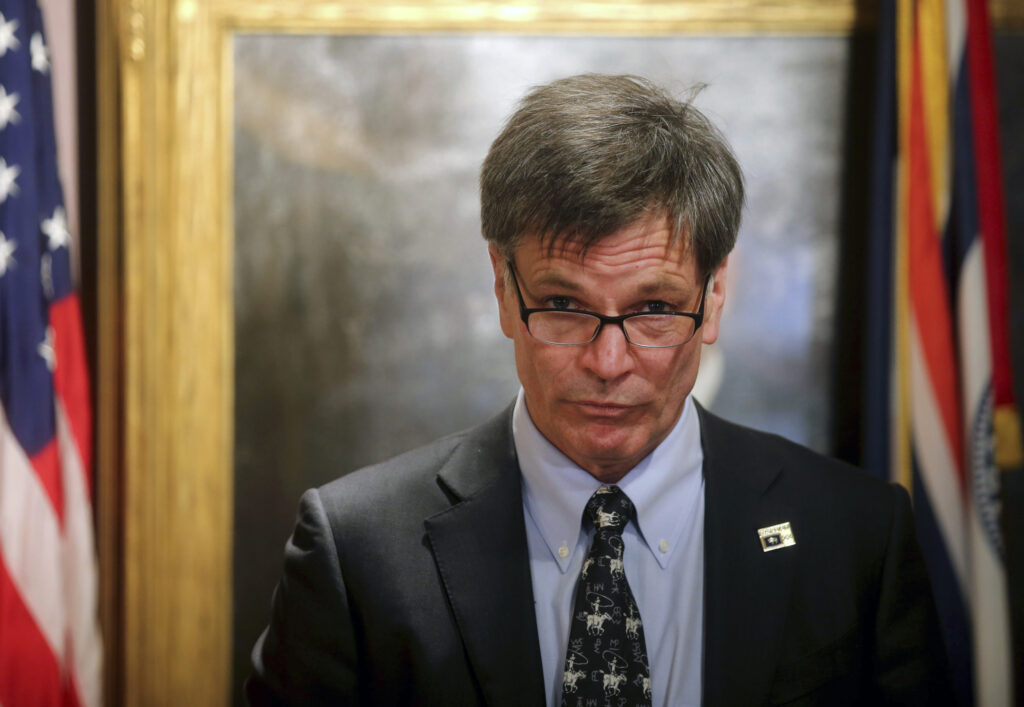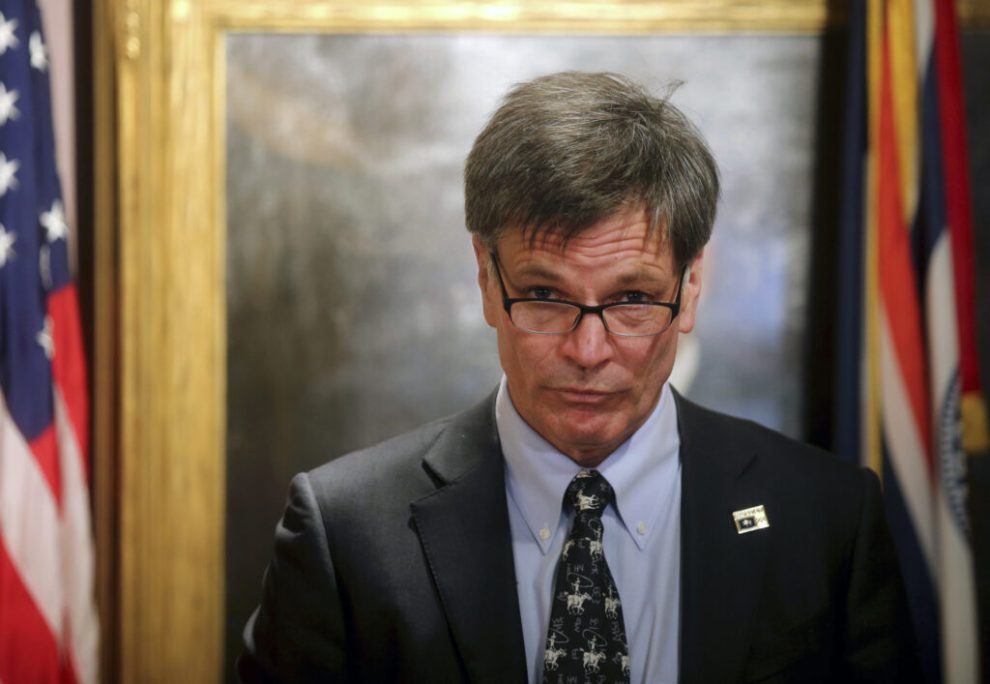Several state laws concerning whether noncitizens can vote are being tested in court, as Republicans attempt to limit voting rights to citizens while Democrats seek to expand them to noncitizens.
Some GOP-led states, such as Louisiana and Wyoming, have passed their own versions of a U.S. House bill, the Safeguard American Voter Eligibility Act, which requires proof of citizenship when registering to vote in federal elections. To date, 54 bills have been introduced in 25 states that will either impose or expand proof of citizenship requirements, according to Voting Rights Lab’s legislation tracker. Liberal opponents, however, are pushing back against these measures, with the Elias Law Group challenging Wyoming’s voting integrity bill and a coalition of liberal litigators, such as the Southern Poverty Law Center, threatening to sue over Louisiana’s election security law.
Meanwhile, Democrat-majority jurisdictions that enacted legislation extending the right to vote to include noncitizens, even illegal immigrants, have been met with resistance from GOP groups such as the Republican National Committee.
As the SAVE Act faces its own court challenges, legal battles continue to play out at the state level regarding the constitutionality of the election laws and whether voters are disenfranchised because of them.
Wyoming
Last week, alongside the Equality State Policy Center, the law firm of Marc Elias, a Democratic attorney who has represented the Democratic Party in a litany of election lawsuits, sued the state of Wyoming over a new election integrity law that requires proof of citizenship and residency to register to vote.
DEMOCRATS WANT NONCITIZENS TO VOTE IN OUR ELECTIONS
House Bill 156, which is slated to go into effect in July, requires prospective registrants in the state to provide documents proving their U.S. citizenship to register to vote. Such documents include a driver’s license without an indicator of non-citizenship, a U.S. passport, a birth certificate, or naturalization paperwork.
Gov. Mark Gordon (R-WY) refused to sign the bill, though it became law anyway on March 21 without his signature.
In an interview with the Washington Examiner, Wyoming Secretary of State Chuck Gray, a Republican named in the lawsuit as a defendant, said that the Elias Law Group is now using many of the same arguments Gordon employed. However, Gray said he’s still hopeful the governor would support him in the litigation. Wyoming is one of the few states where the attorney general serves at the governor’s pleasure, so Gordon’s support in fighting the lawsuit is essential.
“The question is how vigorously he’s going to help us in defending the truth,” Gray told the Washington Examiner when asked whether he believes Gordon would side with him over the bill. “We need to have the attorney general work with us in a good-faith way, in preparing a strong defense, and that’s going to require really working with outside counsel.”

Gray noted that, in the past, he had a hard time getting the state attorney general to greenlight outside counseling. “The question is about the bigger the resources that they’re going to allocate, and we’re going to hold them accountable on that,” Gray said.
Despite previous problems with Gordon, Gray expressed full confidence that he would emerge triumphant over the lawsuit.
“You look at this, creating a procedure for ensuring that only citizens are voting, that’s clearly in line with enforcing the Constitution, Wyoming state law,” Gray said. “I mean, it’s clearly in line with that. I’m concerned about the direction of the judiciary, but I am also confident that the truth will win out here.”
The lawsuit, filed Friday, begins by discussing Wyoming’s historical approach to women’s suffrage. It claims that the bill amounted to the state breaking “this 156-year commitment” to its moniker as the “Equality State,” specifically regarding women.
“When HB 156 becomes effective on July 1, 2025, it will impose new, burdensome, and entirely unnecessary requirements that will make it harder for eligible citizens to vote—including, in particular, women,” the lawsuit said. “Specifically, it will bar qualified Wyomingites from being able to register to vote unless they can first produce a form of [documentary proof of citizenship] that the new law deems acceptable. Women—as well as Hispanic, young, and low-income voters—are less likely to have acceptable documentation and, in many cases, face greater hurdles to obtaining it.”
Female residents, as the suit claims, “are more likely than men to be turned away when they go to register as a result of HB 156” due to marital name-changes.
NO ONE IS BUYING THE DEMOCRATS’ GENDER WAR ATTACKS ON VOTER ID AND THE SAVE ACT
Republican state Rep. Rachel Rodriguez-Williams, a co-sponsor of the bill, took issue with this attack angle, given her identity.
“ESPC and Marc Elias claim that the law will impose an undue burden on the right to vote — particularly for women as well as Hispanics,” she told the Washington Examiner in a statement. “As a conservative Latina lawmaker in Wyoming, I disagree. I support ensuring that only US citizens vote in our elections.”
GOP state Rep. John Bear, who introduced the bill, said that a lawsuit challenging a bill approved by 75% of Wyoming voters is “shocking.”
“It is yet another example of how the raging minority turns to lawfare to get their way. It is a direct assault on the integrity of our electoral system,” Bear told the Washington Examiner. “This legislation, passed with overwhelming support in the legislature, is a critical step in ensuring that only U.S. citizens who are bona fide residents of Wyoming participate in our elections.”
THE GOP MUST SEIZE ITS CHANCE TO ENACT ELECTION INTEGRITY
The lawsuit, Bear said, is “not just an attack on HB156; it is an attack on the very foundation of our republic.”
“We stand firm in our belief that election integrity must be preserved and will vigorously defend this law to ensure that Wyoming remains a state where every vote counts and every voter is qualified,” Bear added.
Washington, D.C.
Litigation is ongoing in another immigration-related voting rights case in Washington, D.C.
Last year, a federal court in the District of Columbia dismissed a legal challenge to a local law that currently allows noncitizens to vote in municipal elections.
In 2023, right-wing legal group Immigration Reform Law Institute lodged a lawsuit on behalf of several D.C. residents against the district’s Board of Elections, alleging that the Local Resident Voting Rights Amendment Act of 2022 “dilutes the votes of all U.S. citizen voters in D.C.”
The law allows anyone over 18 who has lived in the district for at least 30 days, regardless of whether they had legally entered the country, to vote in local elections, including races for mayor, school board, council, and attorney general. At first, as introduced, the law only expanded the right to vote to lawful permanent residents. The bill’s provisions were later updated to include illegal immigrants so that voter eligibility “does not distinguish between arbitrary immigration statuses.”
JUDGE DISMISSES LAWSUIT AGAINST DC NONCITIZEN VOTING LAW
After the plaintiffs asked the court to block the law, a former President Barack Obama-appointed judge rejected the request, ruling that the group had not alleged it had “personally been subjected to any sort of disadvantage as individual voters.” Judge Amy Berman Jackson said they were “simply raising a generalized grievance which is insufficient to confer standing.”
Though the plaintiffs “may object as a matter of policy to the fact that immigrants get to vote at all,” according to the 12-page opinion, their votes “will not receive less weight or be treated differently than noncitizens’ votes,” nor are they “losing representation in any legislative body.”
Both sides have since appealed, and oral arguments were delivered on March 14 before the D.C. Circuit Court of Appeals, which is deciding the case.
New York City
Among other jurisdictions with efforts similar to Washington’s, in New York, the state’s highest court struck down a New York City statute earlier this year that would have allowed some noncitizens to vote in certain local elections.
Following a four-year legal fight, the New York State Court of Appeals ruled 6-1 to uphold a previous decision that had found the measure unconstitutional.
“[I]t is facially clear that only citizens may vote in elections within the State of New York,” Chief Judge Rowan D. Wilson wrote on March 20 for the majority. The state constitution “draws a firm line restricting voting to citizens,” the opinion said, siding ultimately with the New York Republican State Committee, the RNC, and others who had sued the city over the statute.
The statute, which the City Council passed in December 2021 toward the end of former Mayor Bill de Blasio’s administration, was immediately challenged in court.
NEW YORK CITY COUNCIL PASSES BILL ALLOWING NONCITIZENS TO VOTE IN LOCAL ELECTIONS
One day after the bill became effective, the plaintiffs brought legal action against the New York City Council, the city’s Board of Elections, and Mayor Eric Adams, who had neither signed nor vetoed the statute when he entered office, letting it lapse into law.
Local Law 11, as enacted, granted immigrants with green cards, work permits, and Deferred Action for Childhood Arrivals status the right to vote in New York City’s elections.
Amending the city charter, the law created a new class called “municipal voters”: lawful permanent residents and noncitizens authorized to work in the United States who have met the 30-day residency requirement and all other voter registration qualifications, except for their lack of U.S. citizenship. Under the law, “eligible municipal voters shall have the right to vote in municipal elections and shall be entitled to the same rights and privileges as U.S. citizen voters with regard to municipal elections.”
At the time, the plaintiffs estimated there were approximately 800,000 newly eligible noncitizen voters in New York City out of about five million active registered voters. By this count, noncitizens could have potentially made up 15% or more of the electorate, a number greater than the margin of victory in many municipal elections, the plaintiffs argued.
NEW YORK SUPREME COURT STRIKES DOWN LAW ALLOWING NONCITIZENS TO VOTE
In 2022, a trial court in Richmond County ruled the law unconstitutional. “It is this Court’s belief that by not expressly including non-citizens in the New York State Constitution, it was the intent of the framers for non-citizens to be omitted,” the lower court said of voter privileges.
Two years later, an intermediate appellate court agreed with the trial court’s ruling. Then the New York Appeals Court took up the matter, marking the city’s last, failed chance to reinstate the law.
























